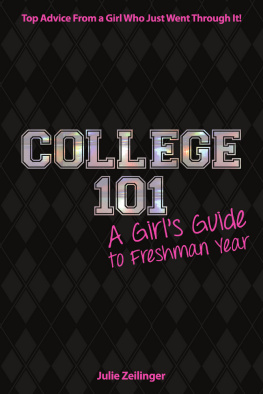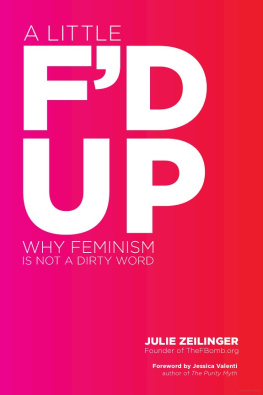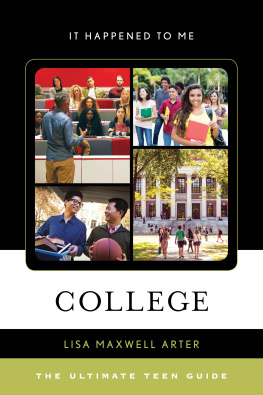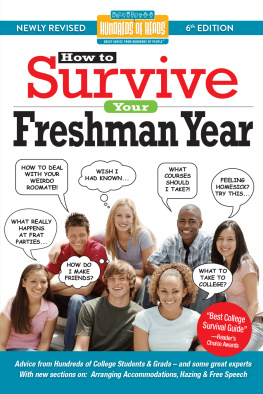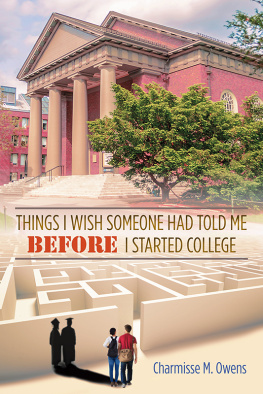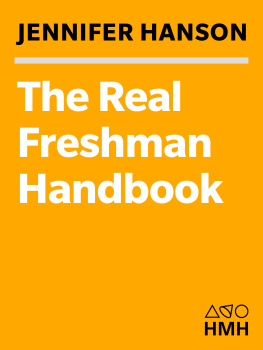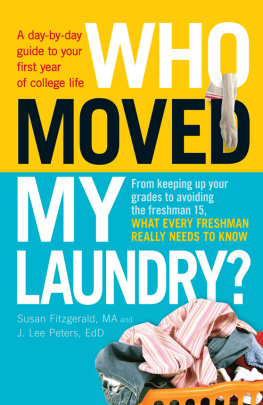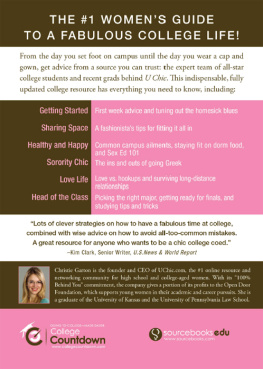
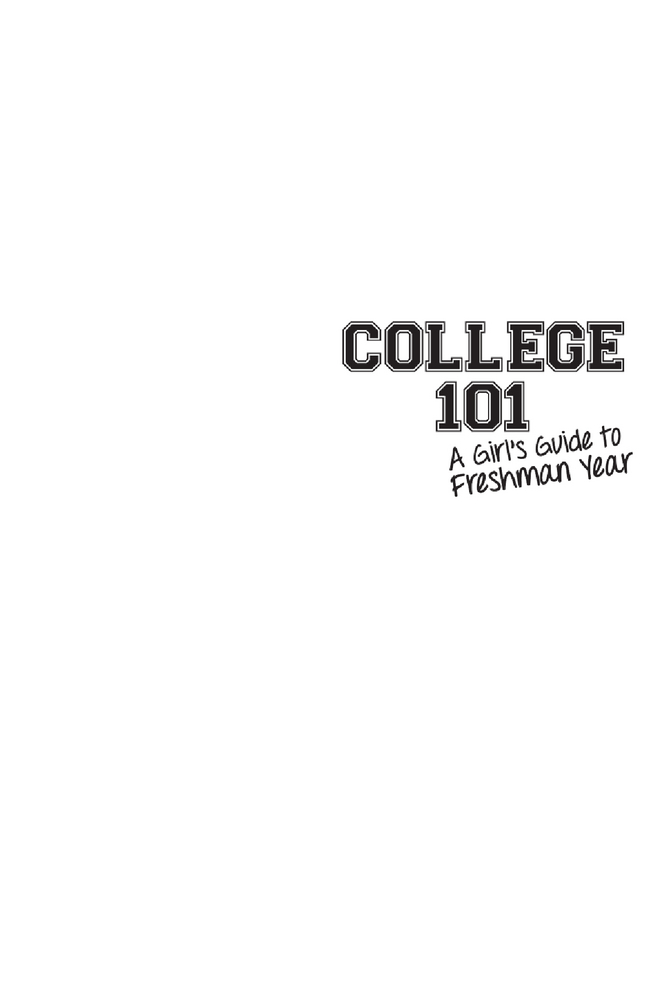
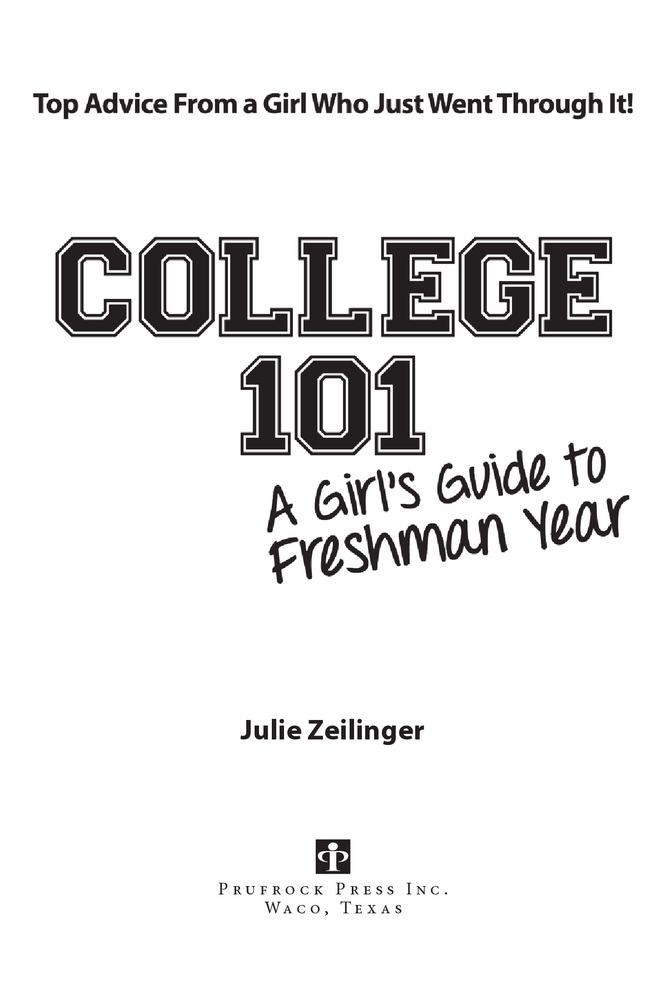
Copyright 2014 Prufrock Press Inc.
Edited by Lacy Compton
Cover and layout design by Raquel Trevino
ISBN-13: 978-1-61821-215-3
No part of this book may be reproduced, translated, stored in a retrieval system, or transmitted, in any form or by any means, electronic, mechanical, photocopying, microfilming, recording, or otherwise, without written permission from the publisher.
At the time of this books publication, all facts and figures cited are the most current available. All telephone numbers, addresses, and website URLs are accurate and active. All publications, organizations, websites, and other resources exist as described in the book, and all have been verified. The author and Prufrock Press Inc. make no warranty or guarantee concerning the information and materials given out by organizations or content found at websites, and we are not responsible for any changes that occur after this books publication. If you find an error, please contact Prufrock Press Inc.
 | Prufrock Press Inc. P.O. Box 8813 Waco, TX 76714-8813 Phone: (800) 998-2208 Fax: (800) 240-0333 http://www.prufrock.com |
Chapter 1
What College is Really Like
Congratulationsyouve made it to the first page of this book which means youre soon going to college (or presumably at least have some kind of vague interest in college). Either way, before we go any further I think I should be very clear: Im not here to tell you that college is going to be the best 4 years of your life. In fact, I disagree with that wildly popular myth. I really dont think college will be the Best Experience of Your Life. In fact, I sincerely hope its not.
That being said, I understand the impulse to glorify the undergraduate experience. Even if the very act of going to college is a financial burden (and, believe me, we will discuss that in greater depthI have some capital F Feelings about the student loan disaster situation), a lot of people make the case that its basically the ultimate sweet spot: You have enough freedom to make your own decisions and to have a ton of fun whenever you want, but not so much freedom that you have to worry about adult responsibilities like paying bills or taxes. Your job is to learn, to have fun, to discover yourself (in terms of your mind and body, if you catch my drift). And its still socially acceptable to eat like a truck driver who has given up on life, and drink at otherwise wildly inappropriate times (read: at literally any time)! And, really, is that not the very definition of perfect happiness (especially when I frame it that way)?
Heres the thing, though: College isnt really like that.
Well, okay, it is like that in a superficial way. Most myths about college are true on some level and I dont want to paint a picture of college as akin to a Dickensian orphanageyou do discover new things about yourself, have plenty of fun, and even learn a thing or two. But the depiction of college as a manic experience of free love and nonstop partying only scrapes the surface of what college is really like. Like most things in life, college is full of highs and lows, full of experiences that arent necessarily good or bad. And yet, were all pretty dedicated to maintaining a culture of silence about our struggles, about bolstering the myth that college is a giant, equalizing party when the freshman year experience can also be isolating, difficult, and even downright scary.
The thing is, if we were all more transparent about our struggles as freshmen (and beyond), we would find we all feel the same waywhich would probably make everybody feel a lot better. Openness and honesty dont erase difficult experiences, but they can make them a little easier to navigate to ones advantageespecially as women. We need to be honest about college and present it as an experience thats nuanced, thats full of all kinds of emotional, psychological, and academic experiences that are different for women.
Enter this book. Drawing from my own experience, the experiences of college-aged women who just went through this process, and various experts, I hope to debunk most of these myths, big and small, so that you dont have to reinvent the wheel and instead can embrace and learn from the experiences of those who have already been there. Basically, Im going to give you all the advice, tips, and facts I wish I had back in 2011 whenbright-eyed and bushy-tailedI first stepped foot on campus.
Ill tell you the truth about everything from what to expect in the classroom (how to get ahead and, yes, when to take a step back) and (mostly) what to expect outside of it. Well discuss roommates (God help us all), relationships (they still exist, kind of!), hooking up and sex (and none of that vague, wishy-washy advicethe real stuff), as well as more serious (yet very real and pervasive) issues like sexual health and violence. Well even talk about debt, but not in an economic, droning way: in the straightforward need-to-know, this-is-how-we-can-avoid-getting-screwed-over way. And those are just the highlights.
But before we get into the details, Id like to take a look at the big picture and debunk the biggest, overarching myths of all.
MYTH: Adapting to college is not a big dealafter orientation youre totally set, and if youre not having the most fun ever all the time, then youre doing it wrong
TRUTH: Freshman year can be a real bitch.
I (like most other newbies) went off to college my freshman year under the impression that I was headed toward the greatest experience of my life. Hastily constructed college movies full of crappy dialogue and 30-year-old actors with perfect faces and bodies cast as 18-year-old freshmen had completely swayed my idea of what to expect, leading me to believe that instead of a liberal arts school in Manhattan, I was actually bound for some version of an orgy interspersed with classes like The Sociological Impact of Mercantilism in Western Europe: 16001750 (you know, practical, useful information that would directly impact and inform a later career). But I soon found that, despite having talked with plenty of current college students and having attended a relatively academically rigorous high school and reading guidebooks, I was unprepared. Beyond increased academic difficulty or new social situations, I was hardly prepared for even the most basic experience of existing at college in a structural way.
It didnt take too long after stepping on campus to basically have a panic attack. I was convinced that I was failing at life and beganto my abject horrorto long for my high school days. I hardly graduated high school as the Prom Queen beloved by the student body, whom teachers tearily hugged good-bye, wondering if they should abdicate their professions having perfected the student-teacher relationship with me. (I wasnot entirely inaccuratelyknown as the weirdo with a dark sense of humor. Cest la vie.)
But it soon became painfully evident how, despite being a confusing time of self-discovery and growing pains (to put it mildly), high school is also undeniably straightforward. High school is highly segmented and chronological, dictated by deadlines and schedules. You go to school for 6 or 7 hours a day, 5 days a week, week in and week out. The impressive consistency of this framework is diversified by notable events like Homecoming and Prom (and all that other social crap that seems like a Really Big Deal at the time but, in retrospect, will seem relatively insignificant, I promise), academic benchmarks like regular quizzes and tests, and the glorious paradises that are high school summers. A students high school experience is laid out before her and defined by concrete indicators of progress either achieved or failed.
Next page
